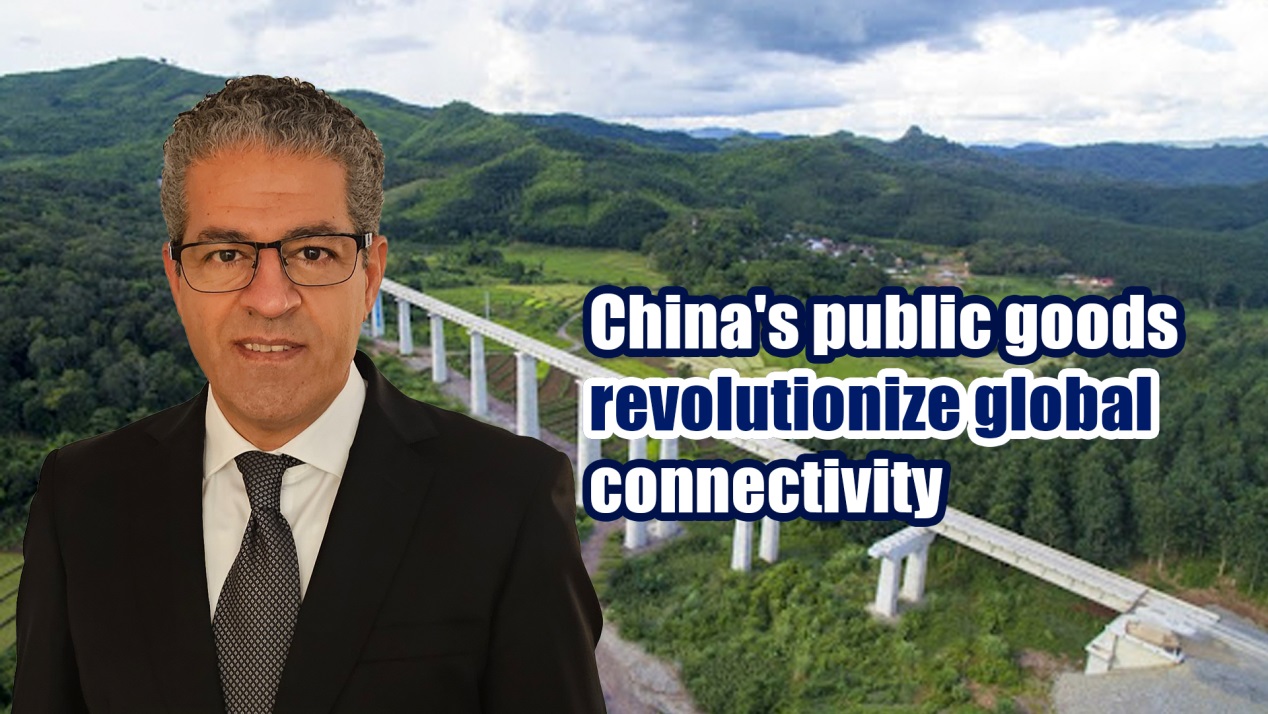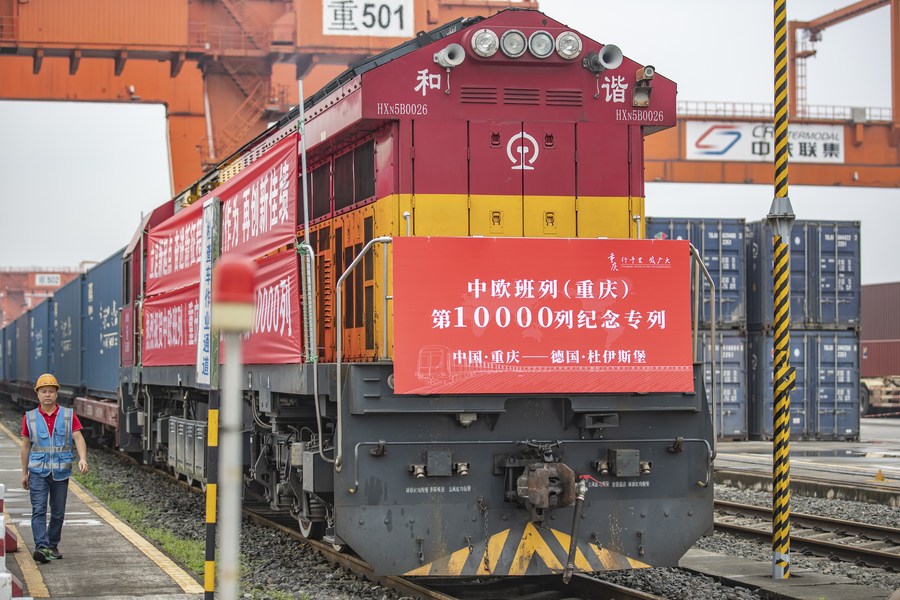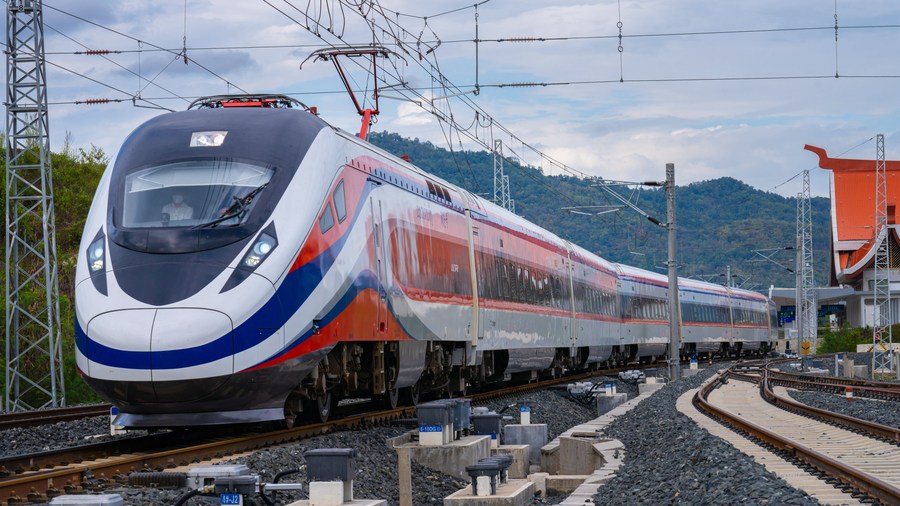Wednesday Feb 18, 2026
Wednesday Feb 18, 2026
Tuesday, 27 February 2024 23:17 - - {{hitsCtrl.values.hits}}

Editor's note: As China is busy preparing for the annual two sessions of the National People's Congress (NPC) and the Chinese People's Political Consultative Conference (CPPCC), some Western media have been enthusiastically hyping that the Chinese economy is collapsing. Is the Chinese economy going to fail? What opportunities have China's growth brought to the world? China Economy from a Global Perspective is a 10-part series analyzing the above questions. The third essay explores the opportunities of China's public goods. Hussein Askary is Vice-President of the Belt and Road Institute in Sweden and a Distinguished Research Fellow at the Guangdong Institute of International Strategies. The article reflects the author's opinions and not necessarily those of CGTN.
Ill-will and pessimistic voices about China's economic performance have been frequently heard in the West. While hyping the sharp slowdown of the Chinese economy, U.S.-led Western countries seem to have forgotten that they are beneficiaries of China's growth.
China-provided public goods including the Belt and Road Initiative (BRI) have been gradually transforming global connectivity, cooperation, and people-to-people communications, and have become an indispensable element in global livelihood and sustainability. This was most true for the West in the face of geopolitical conflicts.
Despite the war in Ukraine and sanctions imposed on both Russia and Belarus – the two main transit countries for rail from China and Central Asia to the EU, rail freight along the China-EU Express Rail (CEER) has been increasing to record volumes.

A cargo train marking the 10,000th trip made by China-Europe freight trains operated by the China-Europe Railway Express (Chongqing), waits for departure at Tuanjie Village Central Railway Station in Chongqing, southwest China, June 23, 2022. /Xinhua
The CEER proved, once again, its vitality for the economies of the EU this year, when the Red Sea shipping routes came under geopolitical fire in the Bab-el-Mandab Strait as a result of the Gaza conflicts. Global shipping operators between Asia and Europe transiting the Red Sea and Suez Canal to the Mediterranean were heavily affected, forcing them to longer and more costly routes around Africa.
Against this backdrop, the CEER came to the rescue of many European and Chinese companies who needed the supplies for the continued production and consumption of goods in Europe. Specialized logistics companies in both China and the EU have reported around 30 percent increase in the freight volume and operations on the CEER since the Red Sea crisis. This can save the day for many companies and businesses in the EU.
In the third Belt and Road Forum for International Cooperation in Beijing in October 2023, Chinese President Xi pledged to build a multidimensional Belt and Road connectivity network with the main projects speeding up the high-quality development of the CEER. This is a signal that China is counting on strengthening its economic relations with Europe in general and the EU in particular.
Not only the West, but the rest of the world has benefitted from China's economic growth and its public goods. The completion of the China-Laos high-speed railway was a milestone in China's connection to the ASEAN countries, helping Laos to move from being doubly landlocked to a land-connected nation. Further west in Türkiye, a new rail line is now connecting the Istanbul Airport, one of the largest and most modern air traffic hubs in the region, to the capital city of Istanbul. Not only the rail line and the self-driving trains are a breakthrough for the country, but also the fact that the Chinese rail company CRRC built the plants that produce these trainsets in Türkiye itself.

The Lane Xang passenger train of the China-Laos Railway runs past a maintenance center in Luang Prabang, Laos, March 30, 2023. /Xinhua
Localization of industries and transfer of technology are unique features of China-provided public goods. In Africa's most populous nation, Nigeria, the Lekki Deep Sea Port built by China Harbor Engineering Company Ltd received the largest container ship that ever docked in the country, marking a milestone for Nigeria's maritime trade.
These projects are not only enhancing global connectivity at an unprecedented speed and scope but also contributing to the sustainable development of the nations of the developing world that have been practically deprived of these public goods and technologies for decades.
There are many stories to be told about how the public goods provided by China are transforming the livelihoods of people around the world. Before spreading pessimistic voices about China's growth, certain Western media outlets should at least do some lessons on these stories.
(If you want to contribute and have specific expertise, please contact us at [email protected]. Follow @thouse_opinions on Twitter to discover the latest commentaries in the CGTN Opinion Section.)